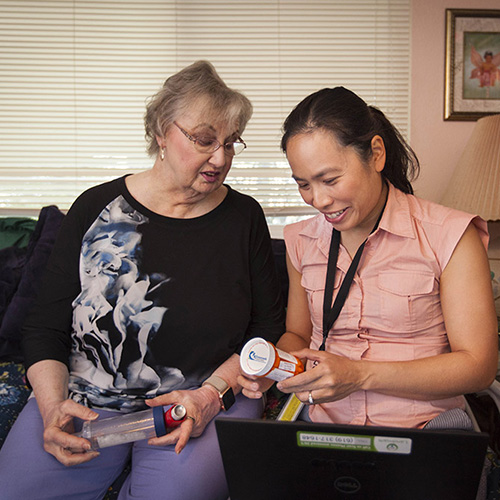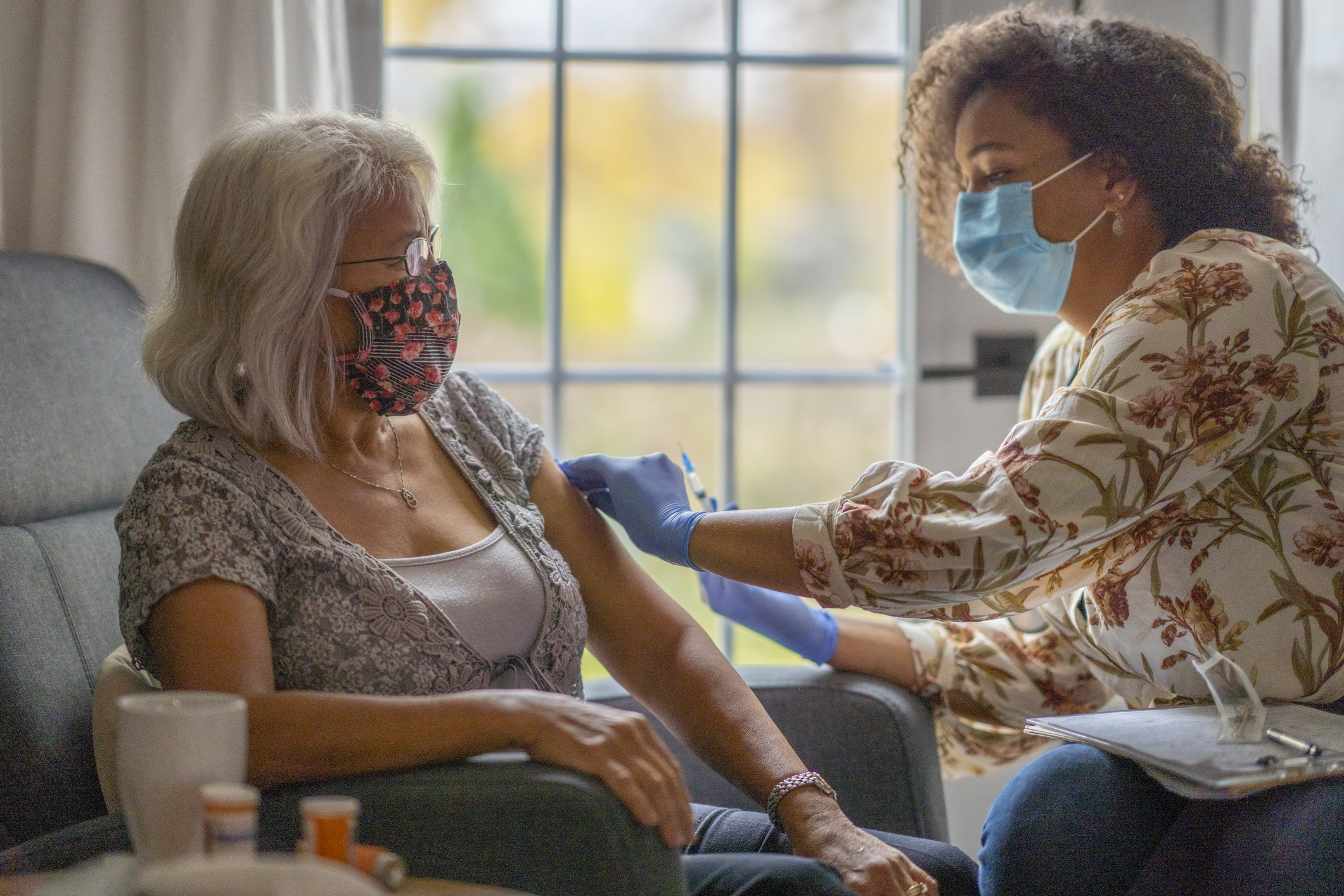
House Calls Offer Patient-centered Care
Read to learn more and download our eBook, “House Calls in the New Age of Health Care.”
It is well accepted that using a patient-centered approach to care (versus a disease-centered, or population-centered approach) can improve the patient experience and outcomes. In a patient-centered care model, providers consider the patient’s medical conditions, as well as the patient’s feelings about their illness, their understanding of their health, and their quality of life. Patients are treated as individuals and are cared for on their own terms. Patients are listened to, informed, involved in their own care, and their wishes are honored throughout their healthcare journey.1 In patient-centered care:
- Prevention is a key element
- An effective patient-provider relationship is emphasized
- Patients are informed of their medical status and options
- Providers respond to the unique needs of each patient
- Family is welcome and included in decision-making
- Physical comfort and emotional well-being are top priorities
- Care is coordinated, collaborative, and easily accessible
- Patient goals are explored and discussed2
Operational excellence and use of the latest medical and information technology can enhance the efficiency of delivering patient-centered care.
Barriers to caring for the whole patient
In too many cases, the current healthcare system doesn’t work for the patients who need care the most. Many vulnerable patients fall through the cracks, and the primary safety net is the hospital emergency room.
We know that many patients with complex health needs encounter barriers to even the most basic care. For example, many complex patients:
- Have difficulty or inability to make it to a doctor’s office
- Have functional or physical impairments
- Require palliative or end-of-life care
- Don’t have access to disease management programs
- Are not aware of available community services
In-home medical care serves to change the status quo in health care by implementing complex panel management, expertise in delivering in-home medical care, operational excellence, and risk-based partnership arrangements and financial models.
How patient-centered care improves results
Successful outcomes of patient-centered care can only be defined in terms of what is meaningful to the individual patient. However, according to a study published in the Journal of Family Practice, there is a strong association between patient-centered communication in primary care and subsequent health and medical utilization. Patient-centered communication was associated with better recovery from discomfort and concern, better emotional health, and fewer diagnostic tests and referrals.3
A patient-centered approach is important to:
- Make effective health care decisions
- Optimize the patient’s quality of life
- Maximize patient satisfaction
- Improve health outcomes
By providing the right level of care in the setting most comfortable for the patient, the healthcare system can improve care and patient outcomes, while reducing the total cost of care.
To learn more about how house calls offer patient-centered care, click below:
References:
- “The Values and Value of Patient-Centered Care” Ann Fam Med. 2011 Mar; 9(2): 100 – 103 https://www.ncbi.nlm.nih.gov/pmc/articles/PMC3056855/
- “What is Patient-Centered Care?” NEJM Catalyst, January 1, 2017 https://catalyst.nejm.org/what-is-patient-centered-care/
- “The Impact of Patient-Centered Care on Outcomes,” The Journal of Family Practice, September 2000. https://www.researchgate.net/profile/Wayne_Weston/publication/12292586_The_Impact_of_Patient-Centered_Care_on_Outcomes/links/004635260327e8a432000000/The-Impact-of-Patient-Centered-Care-on-Outcomes.pdf

